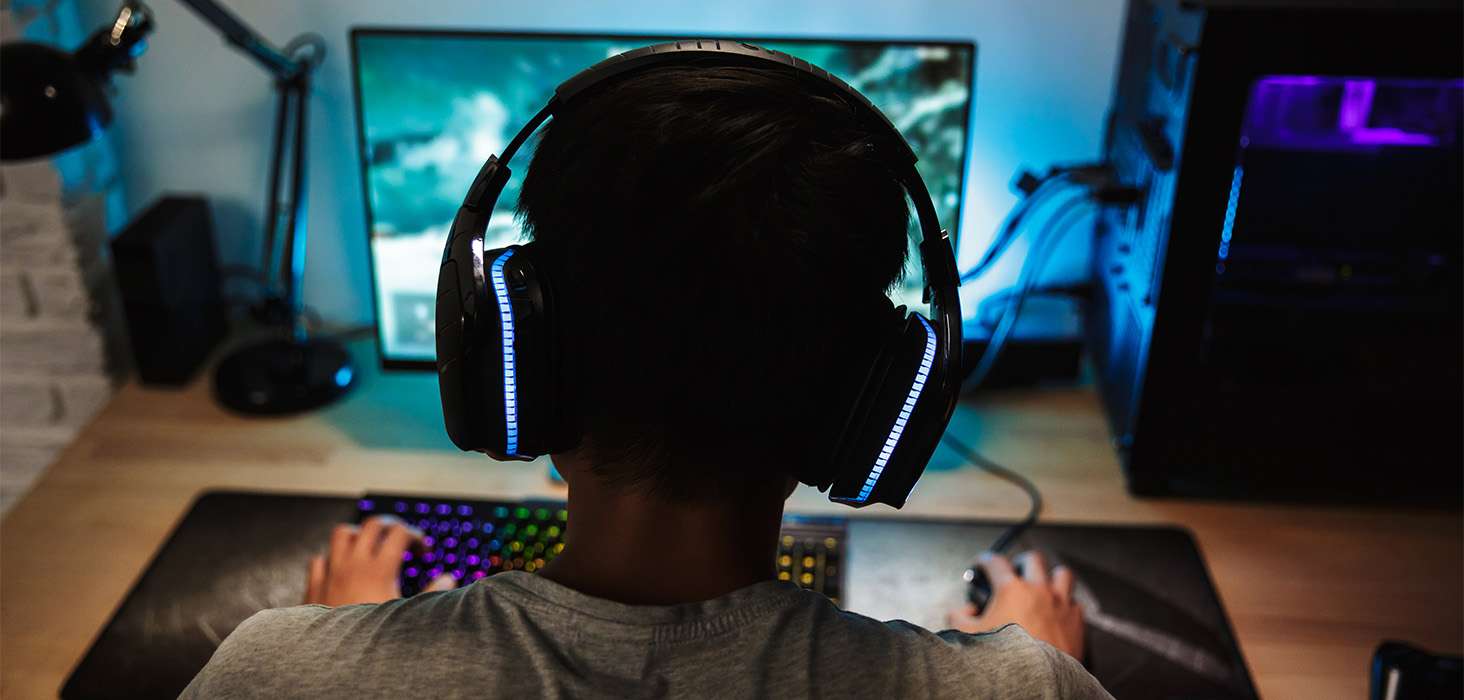The digital revolution of the 20th century introduced many new technologies which offered new ways to occupy our time, and with that, many new concerns, and criticisms. Not the least of which are video games. But how unhealthy are they? Let us explore further.
Wondering whether video games are bad for you or not is probably the last thing on your mind whilst you’re claiming your Dragonborn birthright in Skyrim or doing The Floss in Fortnight. However, since their rise in popularity in the early 1990s, there has been a steady collection of critics who have been saying just that: that video games are bad for you. Read on to see what the critics say, how science may refute these claims and how gaming stacks up against other potentially unhealthy technologies.
Critics often cite obesity, isolation, lack of social skills, and even poor mental health as reasons of gaming’s unhealthy status. But is that really the case? Is the Sims proving to be as damaging to society as some of the other major problems facing the world, such as income inequality or poor healthcare and education?
To really understand just how prevalent video games have become, you need to familiarize yourself with the essential statistics. There are currently over three billion gamers worldwide. Nearly 1.5 billion of these are in Asia, and a staggering 50% of Europe’s population plays video games in one form or another.
Given the popularity of this pastime, we’re making a quick fact-check of some of the biggest criticisms made against video gaming, to see if these naysayers have a point, or not.
Fact-check: do video games cause childhood obesity?

The traditional image of an overweight teenager, lying on the sofa and holding a controller in one hand and a burger in the other, is one many of us have grown up with. So, you’d be forgiven for thinking that the majority of gamers were young people who never set foot outside. You’d be wrong, however: the average age of a gamer today is 35 years old.
A 2019 study by the University of Würzburg, Germany found that the link between gaming and a high body mass is not only tenuous, but that a small correlation is only identifiable in adults and not at all in adolescents. In fact, another recent—though admittedly small—study in Queensland, Australia found that those who played eSports were between 9-21% more likely to be a healthy weight than the general population.
Let’s check the science. Obesity is a medical condition with many complex corroborating factors such as social demographic, geographical location, and genetics, which cannot be causally linked to just one habit or behavior. As social understanding of this condition increases, making simplistic associations such as this are becoming rarer.
Fact-check: do video games cause social isolation?

It’s no secret that a fierce debate is raging about the way modern technology is shaping the way we socialize. Whilst in many ways we are more connected, in others we are becoming increasingly isolated. However, in terms of media usage, videogaming is one of the most social, and least time consuming (of Europe’s) digital media hobbies.
This is borne out by the statistics. In Europe, the average gamer spends less than ten hours a week gaming. By contrast the average European spends 23.5 hours a week watching TV—a famously solo endeavor—and 14 hours a week scrolling on “social” media.
Indeed, in the United States, 55% of parents report playing videogames with their children, and a 2021 British study reported that 61% of respondents played games with friends, family and workmates to stay connected through lockdown. It seems that out of all the digital medias, videogaming comes out on top in terms of social connectivity.
Fact-check: do video games cause injury?

The famous “gamer’s thumb”—also known by its much drier and less catchy medical name of De Quervain’s Tenosynoviti—is an injury caused by repetitive stress. Probably familiar to most gamers who play more than the average ten hours a week, this injury causes inflammation of the tendons in the thumb and can be fairly painful if not treated properly.
Indeed, some pro-gamers are forced to retire early due to horrendous injuries caused by repetitive micromovements and fine motor skills, which cause things like nerve compression, lower back pain, and in some extreme cases even collapsed lungs.
Whilst you may equate physical injuries to more traditional pursuits, such as rugby or football, it seems that video games do in fact have their own catalogue of injuries despite their more sedentary nature.
As with all things in life, moderation is probably key. Too much of any good thing is likely to lead to bad results and the same can be said of gaming. Extreme usage may cause loneliness, or repetitive strain syndrome, or even affect your motivation to “get up and go”. However, as with anything else, when enjoyed in a healthy manner, video games can be no more or less harmful than any other human passion or pastime.





